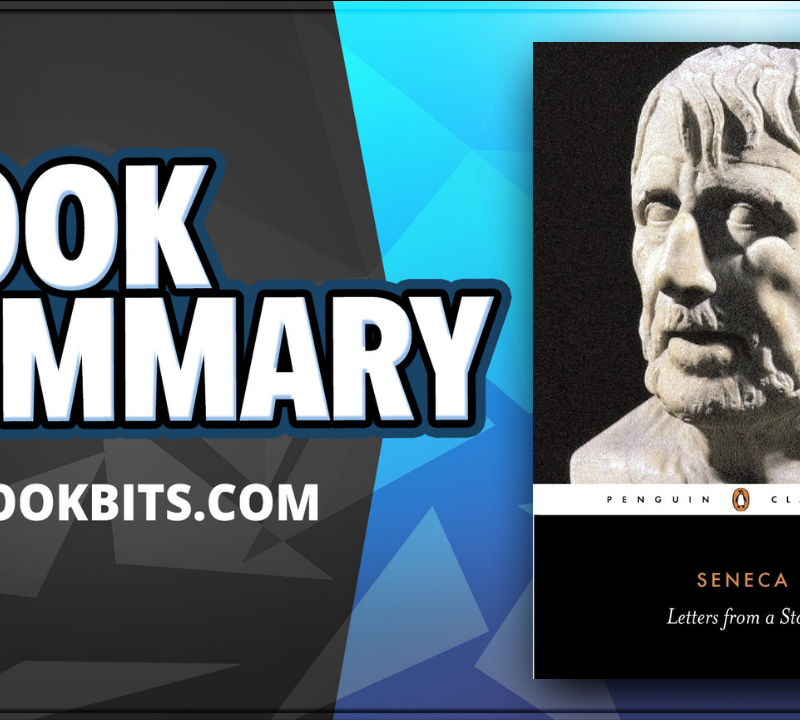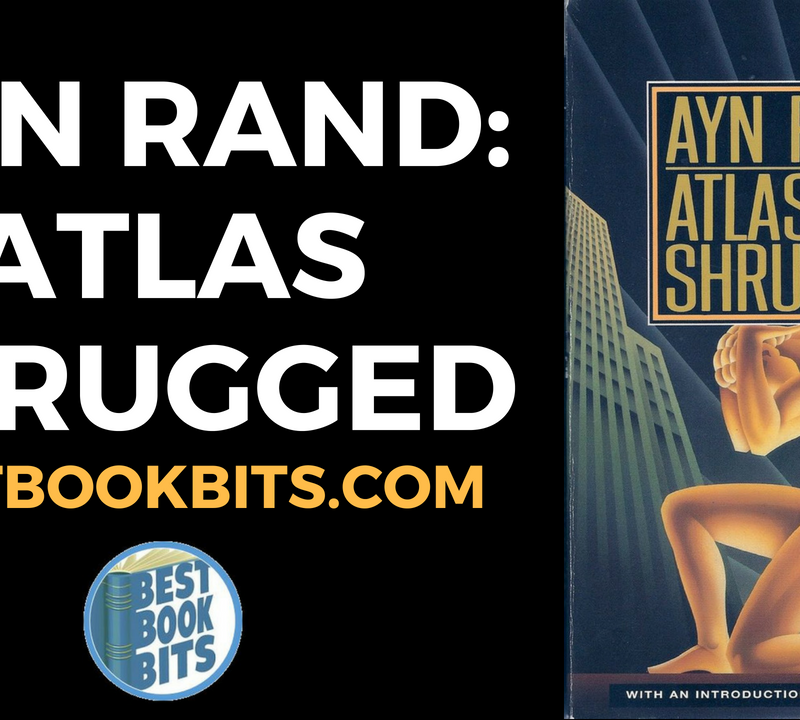★DOWNLOAD THIS FREE PDF SUMMARY HERE https://go.bestbookbits.com/freepdf
? MY FREE BOOK TO LIVING YOUR DREAM LIFE” https://go.bestbookbits.com/first-seven-steps
? SPONSOR BESTBOOKBITS BY USING PATREON https://www.patreon.com/bestbookbits
? SUPPORT BESTBOOKBITS BY CLICKING THE LINKS BELOW
-
- 150 PDF Summaries: https://go.bestbookbits.com/150
- Coaching Program: https://go.bestbookbits.com/coaching
- Subscribe to My Channel: https://www.youtube.com/bestbookbits?sub_confirmation=1
- Website: https://bestbookbits.com
- Instagram: https://www.instagram.com/bestbookbits
- Spotify: https://open.spotify.com/show/0q8OW3dNrLISzyRSEovTBy
- Facebook: https://www.facebook.com/michaelbestbookbits
- Book Club: https://bestbookbits.com/bookclub/
- Mailing List: https://mailchi.mp/d1dfc1907cdb/bestbookbits
As a sentient being, you have the potential to flourish. You can refine your faculty of reason itself by learning and debating. You can seek explanations of the natural world through science, and insight into the human condition through the arts and humanities. You can make the most of your capacity for pleasure and satisfaction, which allowed your ancestors to thrive and thereby allowed you to exist. You can appreciate the beauty and richness of the natural and cultural world.
Obliviousness to the scope of human progress can lead to symptoms that are worse than existential angst. *Cynicism that institutions of modernity have failed and every aspect of life is in a deepening crisis turns us toward atavistic alternatives.
“Optimism is the theory that all failures–all evils–are due to insufficient knowledge.” -David Deutsch
Thinkers of the enlightenment sought a new understanding of the human. Four themes tie them together: reason, science, humanism, and progress.
“If triangles had a god they would give him three sides.” -Montesquieu
[Enlightement] was an escape not just from ignorance but from terror. The sociologist Robert Scott notes that in the Middle Ages “the belief that an external force controlled daily life contributed to a kind of collective paranoia.”
The invention of farming around ten thousand years ago multiplied the availability of calories from cultivated plants and domesticated animals, freed a portion of the population from the demands of hunting and gathering, and eventually gave them the luxury of writing, thinking, and accumulating their ideas.
Axial Age: Around 500 BCE, several widely separated cultures pivoted from systems of ritual and sacrifice that merely warded off misfortune to systems of philosophical and religious belief…It was not an aura of spirituality that descended on the planet but something more prosaic: energy capture. *Agricultural and economic advances provided more calories per person and shifted focus from short-term survival to long-term harmony.
To take something on faith means to believe it without good reason, so by definition a faith in the existence of supernatural entities clashes with reason.
Political ideology undermines reason and science. It scrambles people’s judgment, inflames a primitive tribal mindset, and distracts them from a sounder understanding of how to improve the world.
Availability heuristic: people estimate the probability of an event or the frequency of a kind of thing by the ease with which instances come to mind. *Why news distorts people’s view of the world.
Two other illusions mislead us into thinking that things ain’t what they used to be: we mistake the growing burdens of maturity and parenthood for a less innocent world, and we mistake a decline in our own faculties for a decline in the times. As the columnist Franklin Pierce Adams pointed out, “Nothing is more responsible for the good old days than a bad memory.”
*American journalism defines “serious news” as “what’s going wrong” which has led millions to quit believing in incremental system change and instead seek revolutionary, smash-the-machine change.
In the mid-18th century, life expectancy in Europe and the Americas was around 35, where it had been parked for the 225 previous years…By 1950, it had grown to around 60 in Europe and the Americas.
For an American woman, being pregnant a century ago was almost as dangerous as having breast cancer today.
For most of human history, the strongest force of death was infectious disease…but starting in the late 18th century with the invention of vaccination and accelerating in the 19th with the acceptance of germ theory of disease, the tide of the battle began to turn. Handwashing, midwifery, mosquito control, and especially the protection of drinking water by public sewerage and chlorinated tap water would come to save billions of lives.
“We are led to forget the dominating misery of other times in part by the grace of literature, poetry, romance, and legend, which celebrate those who lived well and forget those who lived in the silence of poverty. The eras of misery have been mythologized and may even be remembered as golden ages of pastoral simplicity. They were not.” -Nathan Rosenberg
In two hundred years the rate of extreme poverty in the world has tanked from 90 percent to 10, with almost half that decline occurring in the last thirty-five years.
National income correlates with every indicator of human flourishing…*longevity, health, nutrition, peace, freedom, human rights, and tolerance.
Not surprisingly, as countries get richer they get happier; more surprisingly, as countries get richer they get smarter.
“From the point of view of morality, it is not important everyone should have the same. What is morally important is that each should have enough.” -Harry Frankfurt
The confusion of inequality with poverty comes straight out of the lump fallacy–the mindset in which wealth is a finite resource…which has to be divided up in zero-sum fashion. [But] since the Industrial Revolution, it has expanded exponentially. That means when the rich get richer, the poor can get richer too.
In 2011, more than 95 percent of American households below the poverty line had electricity, running water, flush toilets, a refrigerator, a stove, and a color TV. (A century and a half before, the Rothschilds, Astors, and Vanderbilts had none of these things.) *50% had a dishwasher, 60% computer, 66% washing machine, 80% air conditioner and cell phone.
Inequality is not the same as poverty, and it is not a fundamental dimension of human flourishing. In comparisons of well-being across countries, it pales in importance next to overall wealth.
In some ways the world has become less equal, but in more ways the world’s people have become better off.
Ecomodernism:
-Some degree of pollution is an inescapable consequence of the Second Law of Thermodynamics. When people use energy…they must increase entropy somewhere in the environment in the form of waste, pollution, and other forms of disorder.
-Industrialization has been good for humanity. It has fed billions, doubled life spans, slashed extreme poverty.
-The tradeoff that pits human well-being against environmental damage can be renegotiated by technology.
Dematerialization: Progress in technology allows us to do more with less…forty consumer products replaced by a single smartphone…the sharing economy.
Half of the world’s homicides are committed in just twenty-three countries containing about a tenth of humanity, and a quarter are committed in just four: Brazil, Colombia, Mexico, and Venezuela…The lopsidedness continues down the fractal scale. Within a country, most of the homicides cluster in a few cities…Within cities, the homicides cluster in a few neighborhoods; within neighborhoods, they cluster in a few blocks; and within blocks, many are carried out by a few individuals.
Horse-drawn era: The engine of city mayhem was the horse….horse-associated fatality rate was ten times the car-associated rate of modern times.
As indefensible or unworkable ideas fall by the wayside, they are removed from the pool of thinkable options, the political fringe is dragged forward despite itself. That’s why even in the most regressive political movement in recent American history there were no calls for reinstating Jim Crow laws, ending women’s suffrage, or recriminalizing homosexuality.
Although the world remains highly unequal, every region has been improving, and the worst-off parts of the world are better off than the best-off parts not long ago.
“The entire concept of retirement is unique to the last five decades. It wasn’t long ago that the average American man had two stages of life: work and death…Think of it this way: The average American now retires at age 62. One hundred years ago, the average American died at age 51.” -Morgan Housel
Mindless consumerism? Not when you remember that food, clothing, and shelter are the three necessities of life, that entropy degrades all three, and that the time it takes to keep them usable is time that could be devoted to other pursuits.
*Housework fell almost fourfold from 58 hours a week in 1900 to 15.5 hours in 2011. Laundry alone fell from 11.5 hours in 1920 to 1.5 in 2015.
In 1929 Americans spent more than 60 percent of their disposable income on necessities; by 2016 that had fallen to a third.
Happiness is the output of an ancient biological feedback system that tracks our progress in pursuing auspicious signs of fitness in a natural environment. We are happier, in general, when we are healthy, comfortable, safe, provisioned, socially connected, sexual, and loved.
Goal of progress cannot be to increase happiness indefinitely…but there is plenty of unhappiness that can be reduced, and no limit as to how meaningful our lives can become.
We now know that richer people within a country are happier, that richer countries are happier, and that people get happier as their countries get richer.
*But none of us are as happy as we ought to be, given how amazing our world has become.
Not every problem is a crisis, a plague, or an epidemic, and among the things that happen in the world is that people solve the problems confronting them.
[AI] advances have not come from a better understanding of the workings of intelligence but from the brute-force power of faster chips and bigger data, which allow the programs to be trained on millions of examples and generalize to similar new ones.
★DOWNLOAD THIS FREE PDF SUMMARY HERE https://go.bestbookbits.com/freepdf
? MY FREE BOOK TO LIVING YOUR DREAM LIFE” https://go.bestbookbits.com/first-seven-steps
? SPONSOR BESTBOOKBITS BY USING PATREON https://www.patreon.com/bestbookbits
? SUPPORT BESTBOOKBITS BY CLICKING THE LINKS BELOW
-
- 150 PDF Summaries: https://go.bestbookbits.com/150
- Coaching Program: https://go.bestbookbits.com/coaching
- Subscribe to My Channel: https://www.youtube.com/bestbookbits?sub_confirmation=1
- Website: https://bestbookbits.com
- Instagram: https://www.instagram.com/bestbookbits
- Spotify: https://open.spotify.com/show/0q8OW3dNrLISzyRSEovTBy
- Facebook: https://www.facebook.com/michaelbestbookbits
- Book Club: https://bestbookbits.com/bookclub/
- Mailing List: https://mailchi.mp/d1dfc1907cdb/bestbookbits
Progress it not utopia…there is room–indeed, an imperative–for us to continue that progress.
“We cannot absolutely prove that those are in error who tell us that society has reached a turning point, that we have seen our best days. But so said all before us, and with just as much apparent reason…On what principle is it, that when we see nothing but improvement behind us, we are to expect nothing but deterioration before us?” -Thomas Macaulay, 1830
Populism comes in left-wing and right-wing varieties, which share a folk theory of economics as a zero-sum competition: between economic classes in the case of the left, between nations or ethnic groups in the case of the right. Problems are seen not as challenges that are inevitable in an indifferent universe but as the malevolent designs of insidious elites, minorities, or foreigners.
Education instills a respect for vetted fact and reasoned argument, and so inoculates people against conspiracy theories, reasoning by anecdotes, and emotional demagoguery.
We are a cognitive species that depends on explanations of the world. Since the world is the way it is regardless of what people believe about it, there is a strong selection pressure for an ability to develop explanations that are true. Reasoning thus has deep evolutionary roots.
Certain beliefs (i.e. climate change) become symbols of cultural allegiance. People affirm or deny these beliefs to express not what they know but who they are. We all identify with particular tribes or subcultures…make an enormous difference to the respect the person commands in his or her social circle.
Engagement with politics is like sports fandom in another way: people seek and consume news to enhance the fan experience, not to make their opinions more accurate.
A challenge of our era is how to foster intellectual and political culture that is driven by reason rather than tribalism and mutual reaction.
Philosophy grows out of the recognition that clarity and logic don’t come easily to us and that we’re better off when our thinking is refined and deepened. The arts are one of the things that make life worth living, enriching human experience with beauty and insight.
Historical scholarship has amply demonstrated that holy scriptures are all-too-human products of their historical eras, including internal contradictions, factual errors, plagiarism from neighboring civilizations, and scientific absurdities.
Today, of course, enlightened believers cherry-pick the humane injunctions while allegorizing, spin-doctoring, or ignoring the vicious ones, and that’s just the point: they read the Bible through the lens of Enlightenment humanism.
Atheism is not a moral system. It’s just the absence of a supernatural belief, like an unwillingness to believe in Zeus or Vishnu. The moral alternative to theism is humanism.
People are vulnerable to cognitive illusions that lead to supernatural beliefs, and they certainly need to belong to a community.
The problem begins with the fact that many of the precepts of Islamic doctrine, taken literally, are floridly antihumanistic…Of course many of the passages in the Bible are floridly antihumanistic too. One needn’t debate which is worse; what matters is how literally the adherents take them.
The stranglehold of the Islamic religion over governmental institutions and civil society in Muslim countries has impeded their economic, political, and social progress.
Islam is not a race…Religions are just ideas and don’t have rights. Criticizing the ideas of Islam is no more bigoted than criticizing the ideas of neoliberalism or the Republican Party platform.
Remember your math: an anecdote is not a trend. Remember your history: the fact that something is bad today doesn’t mean it was better in the past. Remember your philosophy: one cannot reason that there’s no such thing as reason, or that something is true or good because God said it is. And remember your psychology: much of what we know isn’t so, especially when our comrades know it too.
Keep some perspective. Not every problem is a Crisis, Plague, Epidemic, or Existential Threat, and not every change is the End of this, the Death of That, or the Dawn of a Post-Something Era.
★DOWNLOAD THIS FREE PDF SUMMARY HERE https://go.bestbookbits.com/freepdf
? MY FREE BOOK TO LIVING YOUR DREAM LIFE” https://go.bestbookbits.com/first-seven-steps
? SPONSOR BESTBOOKBITS BY USING PATREON https://www.patreon.com/bestbookbits
? SUPPORT BESTBOOKBITS BY CLICKING THE LINKS BELOW
-
- 150 PDF Summaries: https://go.bestbookbits.com/150
- Coaching Program: https://go.bestbookbits.com/coaching
- Subscribe to My Channel: https://www.youtube.com/bestbookbits?sub_confirmation=1
- Website: https://bestbookbits.com
- Instagram: https://www.instagram.com/bestbookbits
- Spotify: https://open.spotify.com/show/0q8OW3dNrLISzyRSEovTBy
- Facebook: https://www.facebook.com/michaelbestbookbits
- Book Club: https://bestbookbits.com/bookclub/
- Mailing List: https://mailchi.mp/d1dfc1907cdb/bestbookbits













